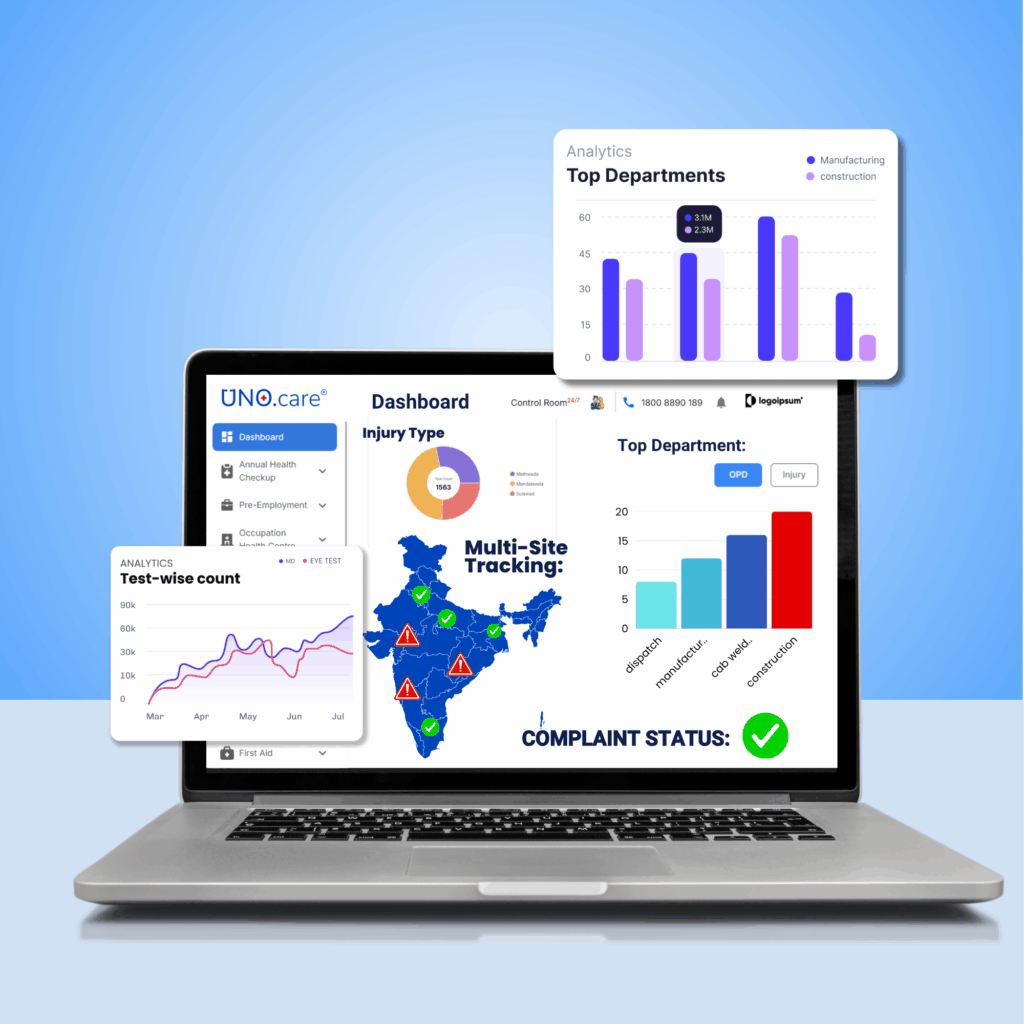
Traditionally, workplace health management was reactive—responding only after illness or accidents occurred. Today, AI is changing the game. By analyzing health data and workplace patterns, AI predicts risks before they turn into crises.
Why Reactive Systems Fail
Reactive health systems catch problems late, leading to:
- Costly treatments
- Higher absenteeism
- Audit penalties
- Low employee morale
How AI Transforms Workplace Health
- Pattern Recognition: AI detects clusters of illnesses in departments—e.g., rising respiratory cases.
- Predictive Alerts: Dashboards warn leaders about emerging risks (heatstroke, fatigue, chemical exposure).
- Customized Screening: Instead of generic checkups, AI suggests specific tests for high-risk workers.
- Data-Driven Decisions: AI helps leadership invest in the right preventive measures.
Real-World Example
A cement plant noticed rising fatigue among workers. AI correlated it with poor night-shift nutrition. Fixing cafeteria meals cut absenteeism by 18% in six months.
Benefits for Leadership
- Compliance Confidence → Prevent gaps before audits
- Cost Savings → Prevention is cheaper than treatment
- Workforce Trust → Employees see management acting proactively
Conclusion
AI is the new frontline doctor. It doesn’t replace FMOs—it empowers them with foresight. With AI, industries move from firefighting to foresight.
